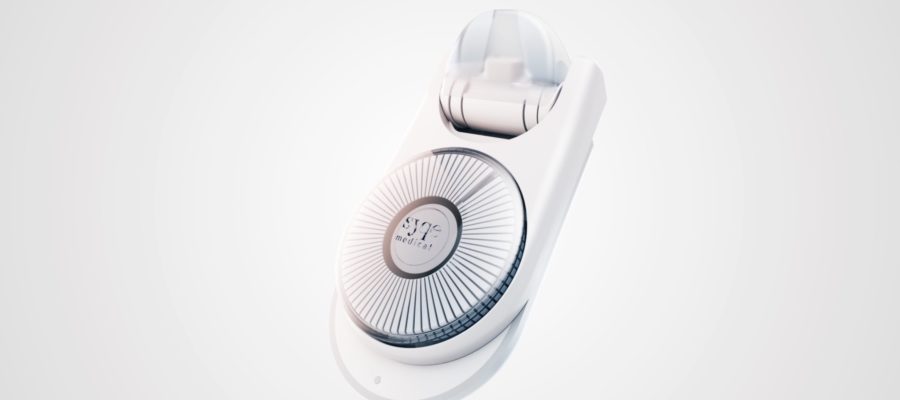CREATING INNOVATIVE MEDICAL DEVICES WITH SYQE & 3D PRINTING
Healthcare
Explore how 3D printing can help your organization innovate in medical applications & healthcare: https://goo.gl/Rdws51
Sign-up to our newsletter to stay up to date with our adventures in healthcare & medical innovation: https://goo.gl/kdfppR
In the healthcare industry, facing unsolved clinical challenges is no easy task. With the added obstacle of time constraints, this is an exceedingly difficult market to penetrate. Medical tech start-up Syqe Medical aims to correct this.
With a controlled dosage of cannabis, the company’s first project was the development of a drug delivery system to relieve patients who were suffering from severe neuropathic pain. According to Professor Elon Eisenberg, M.D., Director of Pain Research at the RAMBAM Medical Center in Israel, “This pain is very resistant to many available treatments. Cannabis works to reduce this type of pain . . . The problem is that up till now there was no quantifiable and predictable way to describe medical cannabis.” A project like this was a huge undertaking and Syqe was faced with tremendous challenges in controlling the dosage of cannabis which holds both therapeutic and psychoactive properties. Perry Davison, Syqe’s Medical Founder & CEO says, “We needed to control it in a very precise manner. So we set out to develop a quantified metered dose delivery system for cannabis as a start and for other botanicals that have therapeutic value”.
Syqe developed an inhaler in which 80% of its components consisted of 3D printed parts. Using an Objet 350 3D Printer from Stratasys, Syqe turned to additive manufacturing as their R&D center. With 3D printed parts, they were able to prototype the inhaler and show to investors the device’s portability and how the electronics and airflow would work. This was achieved through a 3D printed model and helped win over investors, where they were able to obtain funding to take the device to clinical trials.
Traditional CNC machining proved to be too slow and expensive for a startup with limited resources. Syqe again turned to Stratasys’ 3D printing technologies for creating devices for clinical trials. A device was completely redesigned and a working model was 3D printed in whole with the exception of electronic and metal parts. The ability to iterate part designs quickly and easily was critical to the design phase of the inhaler. Davison later explains, “one of the biggest design challenges was the inhalation system. Different patients inhale in different ways, different age groups have different lung volumes. So we needed to create an airflow system that is completely patient-agnostic”.
With 3D printing, Syqe was able to iterate 10 different airflow mechanisms in a span of a single month, resulting in their breakthrough of a product that solved all previous design problems. This design was only possible with 3D printing as the technology allowed the product to reach the level of performance and quality that ensured consistent and precise doses. As a result of its optimized design, the Syqe inhaler- 80% of which was 3D printed- had a successful clinical trial and is now ready for commercial production. The final product contains many 3D printed parts. For example, the parts that come into contact with the human body, including the inhalation mechanism, are 3D printed using Stratasys MED610™ biocompatible material.
If you are interested in exploring this solution for your organization please speak with one of our additive manufacturing experts: https://goo.gl/qHnouO
